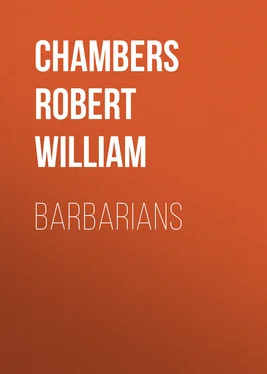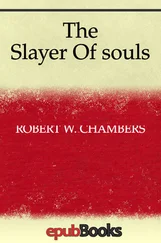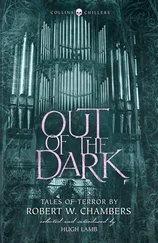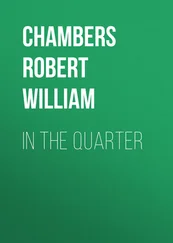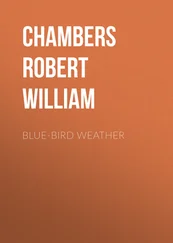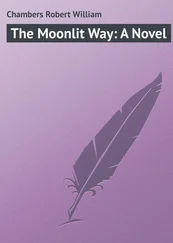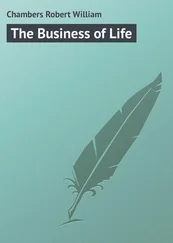Robert Chambers - Barbarians
Здесь есть возможность читать онлайн «Robert Chambers - Barbarians» — ознакомительный отрывок электронной книги совершенно бесплатно, а после прочтения отрывка купить полную версию. В некоторых случаях можно слушать аудио, скачать через торрент в формате fb2 и присутствует краткое содержание. Жанр: foreign_prose, foreign_antique, на английском языке. Описание произведения, (предисловие) а так же отзывы посетителей доступны на портале библиотеки ЛибКат.
- Название:Barbarians
- Автор:
- Жанр:
- Год:неизвестен
- ISBN:нет данных
- Рейтинг книги:3 / 5. Голосов: 1
-
Избранное:Добавить в избранное
- Отзывы:
-
Ваша оценка:
- 60
- 1
- 2
- 3
- 4
- 5
Barbarians: краткое содержание, описание и аннотация
Предлагаем к чтению аннотацию, описание, краткое содержание или предисловие (зависит от того, что написал сам автор книги «Barbarians»). Если вы не нашли необходимую информацию о книге — напишите в комментариях, мы постараемся отыскать её.
Barbarians — читать онлайн ознакомительный отрывок
Ниже представлен текст книги, разбитый по страницам. Система сохранения места последней прочитанной страницы, позволяет с удобством читать онлайн бесплатно книгу «Barbarians», без необходимости каждый раз заново искать на чём Вы остановились. Поставьте закладку, и сможете в любой момент перейти на страницу, на которой закончили чтение.
Интервал:
Закладка:
Robert W. Chambers
Barbarians
Stent lost the fight, fell outward, wider, dropping back into mid-air. [ Page 62 At the shocking sound of the impact Stent wheeled from the abyss, then staggered back under the powerful shove from Von Glahn's nervous arm. Swaying, fighting frantically for foothold, there on the chasm's awful edge, he balanced for an instant; fought for equilibrium. Von Glahn, rigid, watched him. Then, deathly white, his young eyes looking straight into the eyes of his old classmate—Stent lost the fight, fell outward, wider, dropping back into mid-air, down through sheer, tremendous depths—down there where the broad river seemed only a silver thread and the forests looked like beds of tender, velvet moss. After him, fluttering irresolutely, flitted Parnassus Apollo, still winging its erratic way where God willed it—a frail, dainty, translucent, wind-blown fleck of white above the gulf—symbol, perhaps of the soul already soaring up out of the terrific deeps below. The Herr Professor sweated and panted as he tugged at the silk handkerchief with which he was busily knotting the arms of the unconscious American behind his back. "Pouf! Ugh! Pig-dog!" he grunted—"mit his pockets full of automatic clips. A Yankee, eh? What I tell you, Siurd?—English and Yankee they are one in blood and one at heart—pig-dogs effery one. Hey, Siurd, what I told you already gesternabend ? The British schwein are in Italy already. Hola! Siurd! Take his feet and we turn him over mal !" But Von Glahn remained motionless, leaning heavily against the crag, his back to the abyss, his blond head buried in both arms. So the Herr Professor, who was a major, too, began, with his powerful, stubby hands, to pull the unconscious man over on his back. And, as he worked, he hummed monotonously but contentedly in his bushy beard something about something being " über alles "—God, perhaps, perhaps the blue sky overhead which covered him and his sickened friend alike, and the hurt enemy whose closed lids shut out the sky above—and the dead man lying very, very far below them—where river and forest and moss and Parnassus were now alike to him.
]
"Daughter of Light, the bestial wrath
Of Barbary besets thy path!
The Hun is beating his painted drum;
His war horns blare! The Hun is come!"
"Father, I feel his fœtid breath:
The thick air reeks with the stench of death;
My will is Thine. Thy will be done
On Turk and Bulgar, Czech and Hun!"
She understands.
Where the dead headland flare
Mocks sea and sand;
Where death-lights shed their glare
On No-Man's-Land.
France takes her stand.
Magnificently fair,
The Flaming Brand
Within her slender hand;
Christ's lilies in her hair.
"Daughter of Grief, thy House is sand!
Thy towers are falling athwart the land.
They've flayed the earth to its ribs of chalk
And over its bones the spectres stalk!"
"Father, I see my high spires reel;
My breast is scarred by the Hun's hoofed heel.
What was, shall be! I read Thy sign:
Thy ocean yawns for the smitten swine!"
Then, from Verdun
Pealed westward to the Somme
From every gun
God's summons: "Daughter! Come!"
Then the red sun
Stood still. Grew dumb
The universal hum
Of life, and numb
The lips of Life, undone
By Death.... And so—France won!
"Daughter of God, the End is here!
The swine rush on: the sea is near!
My wild flowers bloom on the trenches' edge;
My little birds sing by shore and sedge."
"Father, raise up my martyred land!
Clothe her bones with Thy magic hand;
Receive the Brand Thy angel lent,
And stanch my blood with Thy sacrament."
CHAPTER I
FED UP
So this is what happened to the dozen-odd malcontents who could no longer stand the dirty business in Europe and the dirtier politicians at home.
There was treachery in the Senate, treason in the House. A plague of liars infested the Republic; the land was rotting with plots.
But if the authorities at Washington remained incredulous, stunned into impotency, while the din of murder filled the world, a few mere men, fed up on the mess, sickened while awaiting executive galvanization, and started east to purge their souls.
They came from the four quarters of the continent, drawn to the decks of the mule transport by a common sickness and a common necessity. Only two among them had ever before met. They represented all sorts, classes, degrees of education and of ignorance, drawn to a common rendezvous by coincidental nausea incident to the temporary stupidity and poltroonery of those supposed to represent them in the Congress of the Great Republic.
The rendezvous was a mule transport reeking with its cargo, still tied up to the sun-scorched wharf where scores of loungers loafed and gazed up at the rail and exchanged badinage with the supercargo.
The supercargo consisted of this dozen-odd fed-up ones—eight Americans, three Frenchmen and one Belgian.
There was a young soldier of fortune named Carfax, recently discharged from the Pennsylvania State Constabulary, who seemed to feel rather sure of a commission in the British service.
Beside him, leaning on the blistering rail, stood a self-possessed young man named Harry Stent. He had been educated abroad; his means were ample; his time his own. He had shot all kinds of big game except a Hun, he told another young fellow—a civil engineer—who stood at his left and whose name was Jim Brown.
A youth on crutches, passing along the deck behind them, lingered, listening to the conversation, slightly amused at Stent's game list and his further ambition to bag a Boche.
The young man's lameness resulted from a trench acquaintance with the game which Stent desired to hunt. His regiment had been, and still was, the 2nd Foreign Legion. He was on his way back, now, to finish his convalescence in his old home in Finistère. He had been a writer of stories for children. His name was Jacques Wayland.
As he turned away from the group at the rail, still amused, a man advancing aft spoke to him by name, and he recognized an American painter whom he had met in Brittany.
"You, Neeland?"
"Oh, yes. I'm fed up with watchful waiting."
"Where are you bound, ultimately?"
"I've a hint that an Overseas unit can use me. And you, Wayland?"
"Going to my old home in Finistère where I'll get well, I hope."
"And then?"
"Second Foreign."
"Oh. Get that leg in the trenches?" inquired Neeland.
"Yes. Came over to recuperate. But Finistère calls me. I've got to smell the sea off Eryx before I can get well."
A pleasant-faced, middle-aged man, who stood near, turned his head and cast a professionally appraising glance at the young fellow on crutches.
His name was Vail; he was a physician. It did not seem to him that there was much chance for the lame man's very rapid recovery.
Three muleteers came on deck from below—all young men, all talking in loud, careless voices. They wore uniforms of khaki resembling the regular service uniform. They had no right to these uniforms.
One of these young men had invented the costume. His name was Jack Burley. His two comrades were, respectively, "Sticky" Smith and "Kid" Glenn. Both had figured in the squared circle. All three were fed up. They desired to wallop something, even if it were only a leather-rumped mule.
Читать дальшеИнтервал:
Закладка:
Похожие книги на «Barbarians»
Представляем Вашему вниманию похожие книги на «Barbarians» списком для выбора. Мы отобрали схожую по названию и смыслу литературу в надежде предоставить читателям больше вариантов отыскать новые, интересные, ещё непрочитанные произведения.
Обсуждение, отзывы о книге «Barbarians» и просто собственные мнения читателей. Оставьте ваши комментарии, напишите, что Вы думаете о произведении, его смысле или главных героях. Укажите что конкретно понравилось, а что нет, и почему Вы так считаете.
